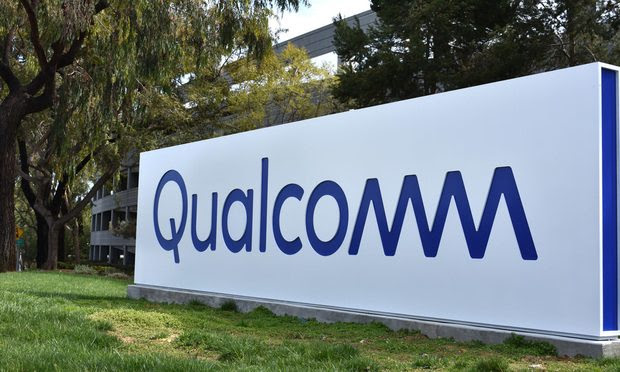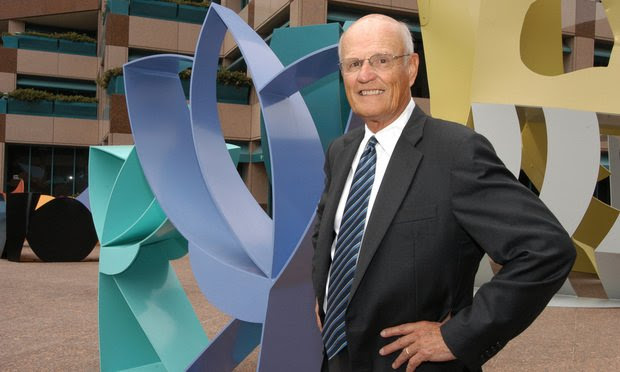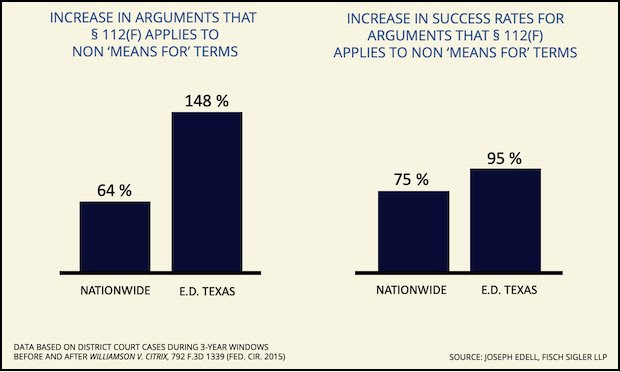Skilled in the Art: Teachers Busted for Using (Copyrighted) Study Guides + Qualcomm Warns of Irreparable Harm + Farewell to a Founder
A handful of Houston Independent School District teachers were sued for distributing hundreds of printed study guides made by a company called DynaStudy while hiding their copyright warnings.
May 28, 2019 at 08:30 PM
10 minute read
Welcome to Skilled in the Art. I'm Law.com IP reporter Scott Graham. I hope you all enjoyed the Memorial Day holiday and the chance to recharge for a day. Across the country students got a break from school and teachers got a day to infringe copyrighted study guides. Wait, what? I'll explain below. Plus, we lost a couple of valued members of the IP bar. Senators Thom Tillis and Chris Coons announced the first witnesses who'll testify on the state of patent eligibility. And Apple wins a big patent case despite losing at the PTAB. As always, you can email me your own thoughts and follow me on Twitter.
 Cole Schotz partner Gary Sorden (left) and associate Timothy Craddock.
Cole Schotz partner Gary Sorden (left) and associate Timothy Craddock.
Houston's Teachable Moment on Copyrights
When I saw that jurors had awarded $9.2 million in a copyright dispute involving Houston's public schools and the makers of study guides, I just assumed that the school district was the winner. Schools are about truth and fair play, right? I always associate study guides with sneaky shortcuts like CliffsNotes.
Nope, I was wrong. It turns out that a handful of Houston Independent School District teachers were running something of a Napster for study guides. They were copying dozens of printed guides made by a company called DynaStudy while hiding their copyright warnings, then uploading and sharing with school district colleagues, who in turn distributed hundreds of copies to their students.
“Here is another file, this one I can email since it is less memory. And has 'no copying' blocked with post it notes,” one teacher emailed to a colleague.
“Don't forget to take off bottom warning before copying a class set,” another teacher warned in a different email.
Schools use DynaStudy's DynaNotes to prepare students for Texas' standardized tests in math, biology, chemistry, English, history and other subjects. DynaStudy says it sent notices of ongoing infringement to the district in 2012, 2014, 2015 and 2016, and was left with no choice to sue in 2016.
The school district argued these were the actions of just a small handful of educators out of 14,000 in the nation's seventh-largest public school district. Much of the material was already in the public domain, such as historical dates, laws of physics and principles of writing, its Bracewell attorneys argued. The school system also argued fair use, because the district as a whole recently ended its contract with DynaStudy while pursuing more contemporary, digital guides. Therefore, any damage to DynaStudy's market value was minimal, the district argued.
Jurors handed an across-the-board win to DynaStudy on Thursday, finding that the district infringed DynaStudy's copyrights on all 36 products submitted to the jury, awarding about $3.2 million in statutory damages. It also found the district violated the Digital Millennium Copyright Act by covering up copyright warnings on 256 occasions, awarding about $6 million for those violations.
DynaStudy was represented by Cole Schotz partner Gary Sorden and associate Timothy Craddock, with help from Mandi Phillips of Klemchuk and DeFacto Trialworks.
“The verdict both affirms copyright law and enables DynaStudy to reimagine the best possible business model to accomplish its mission of 'evening the learning field' by getting effective products into students' hands,” Sorden said in a written statement.

Qualcomm Warns of Irreparable Harm
Qualcomm has just this evening filed a 25-page motion asking U.S. District Judge Lucy Koh to stay her bombshell injunction against its licensing practices pending an appeal to the Ninth Circuit.
I haven't read the whole thing yet, but here's the basic pitch: “To comply with the Order, Qualcomm would have to negotiate, renegotiate and enter into new license agreements with OEMs and with competing chip makers, creating a web of new agreements and business relationships that Qualcomm would not have formed but for the Order,” states the motion, signed by Cravath, Swaine & Moore partner Gary Bornstein.
“But any new agreements that Qualcomm is compelled to enter while the appeal is pending would remain effective even if Qualcomm ultimately prevails before the Ninth Circuit,” he writes. “This would not only irreparably harm Qualcomm, but also would deny Qualcomm its right to effective appellate review.”
Qualcomm is asking Koh to direct a response from the Federal Trade Commission by May 31 and hold a hearing as soon as possible therefafter.
 Knobbe co-founding partner Don Martens
Knobbe co-founding partner Don Martens
A Knobbe Founding Father Passes Away
May has been the a cruel month for IP partners.
Last week, Knobbe Martens co-founder Don Martens passed away in Santa Ana, California at age 85. He helped grow Knobbe from a handful of lawyers in 1965 to more than 275 lawyers and scientists today. He was a past president of the American Intellectual Property Law Association and chair of the ABA's Section of IP law. If you talk with most any longtime Knobbe partner, you'll learn quickly how much they revered Martens and the other founding partners. “Don was a giant in IP law circles for half a century,” Knobbe managing partner Steven Nataupsky said in an email to the firm. “He will always be a role model for the firm and all who knew him.”
Martens was featured in a 2016 Managing IP feature called “The Mad Men of IP.” It spotlighted some of the legendary figures of the 1960s who helped get IP on the map and mold their firms' culture—in Knobbe's case, a collaborative approach that has kept many partners around for decades.
“Don has had a huge impact on my life and career, and it's doubtful whether my wife and I ever would have moved to California in 1987 from the east coast but for him,” Knobbe partner Joe Re said.
“They were all exceptional lawyers. But beyond that, really amazing people,” Brent Babcock, who worked at Knobbe 26 years before departing last fall, said of the firm's four founders. “They had a tremendous positive impact on so many lives.”
I have more details on Martens and his career here.
In the meantime, my ALM colleague Dan Packel reports the sad news that former Holland & Hart IP partner Christopher Kulish lost his life Monday climbing Mount Everest.
Kulish, 62, had maintained a solo practice in Boulder, Colorado, after being a member of Holland & Hart's IP group from 2002 to 2009. ”Chris will be remembered as a friend and an excellent patent attorney,” the firm said in a written statement. “We are deeply saddened to learn of his death, and extend our sympathies to his family and friends.”
Kulish had made it to the top of Everest before dying suddenly at the first camp below the summit. According to The Denver Post, by making it to the top, Kulish entered the “7 Summit Club,” an achievement based on having scaled the highest peak on each continent.

Goodbye Alice, Hello Williamson?
The Senate Judiciary's IP subcommittee has announced the lineup for the first hearing on its draft bill to amend Section 101 of the Patent Act. Former Federal Circuit Chief Judge Paul Michel; Former PTO Director (and current Polsinelli senior partner) Todd Dickinson; and Stanford Law Professor and Durie Tangri partner Mark Lemley will be among the IP luminaries testifying June 4.
There's a long way to go in the legislative process, but if Congress does end up throwing out Alice and all its progeny, it strikes me that Williamson v. Citrix Online, the 2015 Federal Circuit decision that tightened up the rules against functional patent claiming, will gain more relevance.
Williamson lost some of its oomph when the Federal Circuit began interpreting the Supreme Court's Alice decision as applying to patents that claim results without specifying how to achieve them.
Fisch Sigler's Joe Edell crunched some numbers recently on challenges based on Section 112(f) to claims that don't specifically use the phrase “means for.” He found they've increased sharply since Williamson was issued, especially in the Eastern District of Texas. He also finds the success rate of those challenges has increased everywhere, but again, especially in ED-TEX.
Edell and Fisch Sigler's Alan Fisch think Williamson is invoked frequently in the Eastern District, because judges there don't limit the number of claims they will construe.
“Williamson's impact has been felt from coast-to-coast, but nowhere more than in the Eastern District of Texas,” Edell said. “It's prominence will grow even larger if efforts to limit the reach of 101 succeed.”
Apple Loses PTAB Complaint Over Secret Lobbying
It turns out that secret lobbying campaigns with the Patent Trial and Appeal Board can be a profitable strategy.
Voip-Pal.com, which claims Apple owes it $2.8 billion for patent infringement, will not have its patents canceled by the PTAB, despite an ex parte lobbying campaign that resulted in the removal of three PTAB judges who initially thought the patents were likely invalid.
As I recounted here, a former Voip-Pal chairman wrote repeatedly to then-PTAB Chief Judge David Ruschke (copying Commerce Secretary Wilbur Ross, President Donald Trump, the justices of the Supreme Court and others), complaining of bias against Voip-Pal, in part because the initial panel members had done work in the past for Apple. The PTAB quietly assigned three new judges to the panel. They ultimately upheld the challenged claims in a final written decision. The patents relate to the routing of messages to public or private networks.
Apple screamed bloody murder as only Apple can and demanded the patent be canceled as a sanction. A PTAB review panel including Chief Judge Scott Boalickand Deputy Chief Jacqueline Wright Bonilla found that Voip-Pal had known about and participated in the improper lobbying campaign. But they also found that Apple was aware of the campaign and waited till after it lost to speak up. As a sanction they decided they would rehear Apple's case along with PTAB Judge Michael Tierney.
On Friday—18 months since Apple first lodged its complaint—Boalick, Bonilla and Tierney ruled that the original panel had not erred. “We conclude the panel did not misapprehend or overlook any matter in concluding that [Apple] failed to explain adequately” why the patents should be declared obvious.
The outcome might not cost Apple much. While the PTAB has been reexamining the case, Voip-Pal's district court litigation against Apple was transferred from Nevada to the Northern District of California. Apple and several codefendants persuaded U.S. District Judge Lucy Koh to invalidate Voip-Pal's patents as ineligible under Section 101.
It will now fall to the Federal Circuit to sort out Koh's and the PTAB's decisions. Kevin Malek of Malek Moss preserved Voip-Pal's win before the PTAB. Erise IP represented Apple. A Desmarais team featuring John Desmarais represented Apple in the 101 motion before Judge Koh.
That's all from Skilled in the Art today. I'll see you all again on Friday.
This content has been archived. It is available through our partners, LexisNexis® and Bloomberg Law.
To view this content, please continue to their sites.
Not a Lexis Subscriber?
Subscribe Now
Not a Bloomberg Law Subscriber?
Subscribe Now
NOT FOR REPRINT
© 2025 ALM Global, LLC, All Rights Reserved. Request academic re-use from www.copyright.com. All other uses, submit a request to [email protected]. For more information visit Asset & Logo Licensing.
You Might Like
View All
Skilled in the Art With Scott Graham: I'm So Glad We Had This Time Together

Design Patent Appeal Splinters Federal Circuit Panel + Susman Scores $163M Jury Verdict + Finnegan Protects Under Armour's House
Trending Stories
Who Got The Work
J. Brugh Lower of Gibbons has entered an appearance for industrial equipment supplier Devco Corporation in a pending trademark infringement lawsuit. The suit, accusing the defendant of selling knock-off Graco products, was filed Dec. 18 in New Jersey District Court by Rivkin Radler on behalf of Graco Inc. and Graco Minnesota. The case, assigned to U.S. District Judge Zahid N. Quraishi, is 3:24-cv-11294, Graco Inc. et al v. Devco Corporation.
Who Got The Work
Rebecca Maller-Stein and Kent A. Yalowitz of Arnold & Porter Kaye Scholer have entered their appearances for Hanaco Venture Capital and its executives, Lior Prosor and David Frankel, in a pending securities lawsuit. The action, filed on Dec. 24 in New York Southern District Court by Zell, Aron & Co. on behalf of Goldeneye Advisors, accuses the defendants of negligently and fraudulently managing the plaintiff's $1 million investment. The case, assigned to U.S. District Judge Vernon S. Broderick, is 1:24-cv-09918, Goldeneye Advisors, LLC v. Hanaco Venture Capital, Ltd. et al.
Who Got The Work
Attorneys from A&O Shearman has stepped in as defense counsel for Toronto-Dominion Bank and other defendants in a pending securities class action. The suit, filed Dec. 11 in New York Southern District Court by Bleichmar Fonti & Auld, accuses the defendants of concealing the bank's 'pervasive' deficiencies in regards to its compliance with the Bank Secrecy Act and the quality of its anti-money laundering controls. The case, assigned to U.S. District Judge Arun Subramanian, is 1:24-cv-09445, Gonzalez v. The Toronto-Dominion Bank et al.
Who Got The Work
Crown Castle International, a Pennsylvania company providing shared communications infrastructure, has turned to Luke D. Wolf of Gordon Rees Scully Mansukhani to fend off a pending breach-of-contract lawsuit. The court action, filed Nov. 25 in Michigan Eastern District Court by Hooper Hathaway PC on behalf of The Town Residences LLC, accuses Crown Castle of failing to transfer approximately $30,000 in utility payments from T-Mobile in breach of a roof-top lease and assignment agreement. The case, assigned to U.S. District Judge Susan K. Declercq, is 2:24-cv-13131, The Town Residences LLC v. T-Mobile US, Inc. et al.
Who Got The Work
Wilfred P. Coronato and Daniel M. Schwartz of McCarter & English have stepped in as defense counsel to Electrolux Home Products Inc. in a pending product liability lawsuit. The court action, filed Nov. 26 in New York Eastern District Court by Poulos Lopiccolo PC and Nagel Rice LLP on behalf of David Stern, alleges that the defendant's refrigerators’ drawers and shelving repeatedly break and fall apart within months after purchase. The case, assigned to U.S. District Judge Joan M. Azrack, is 2:24-cv-08204, Stern v. Electrolux Home Products, Inc.
Featured Firms
Law Offices of Gary Martin Hays & Associates, P.C.
(470) 294-1674
Law Offices of Mark E. Salomone
(857) 444-6468
Smith & Hassler
(713) 739-1250










